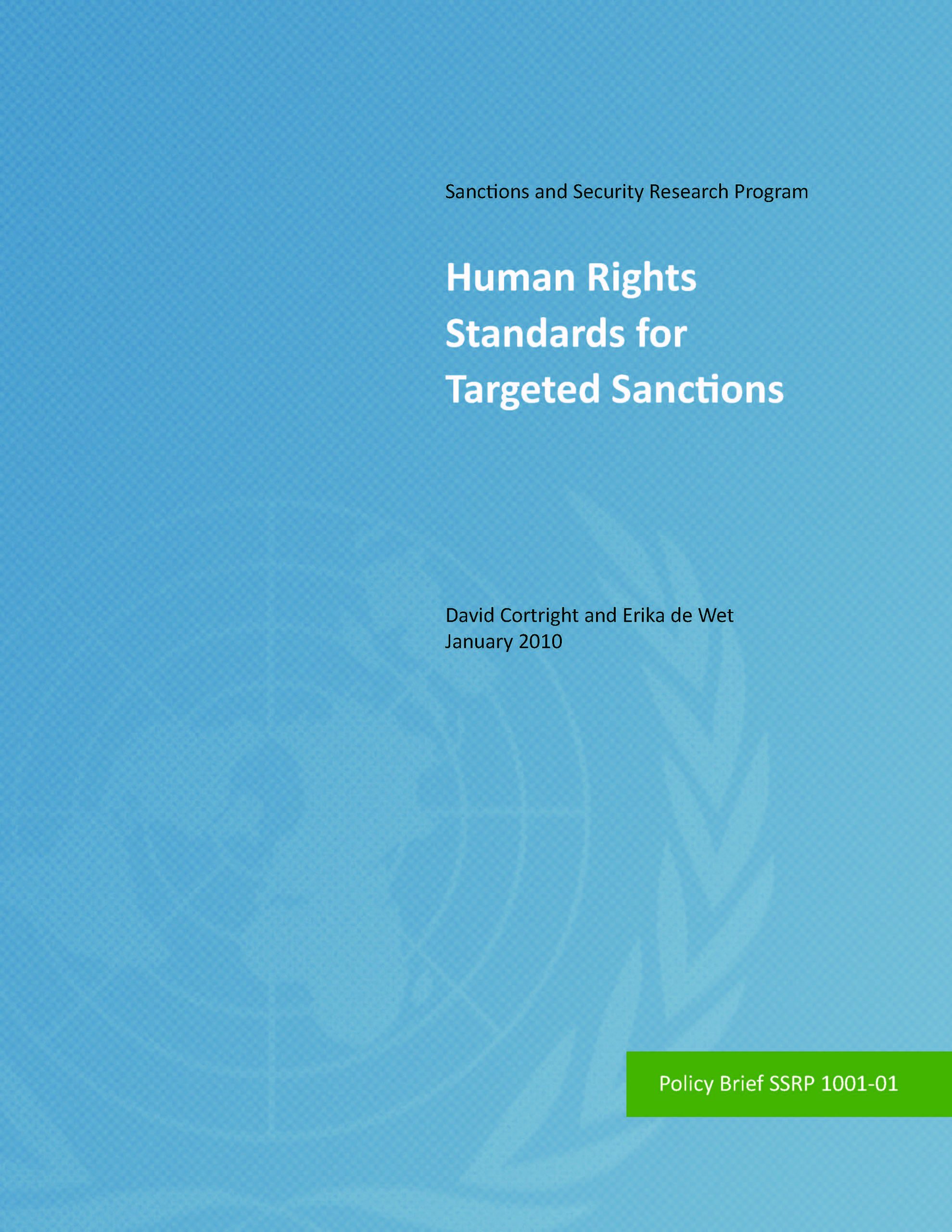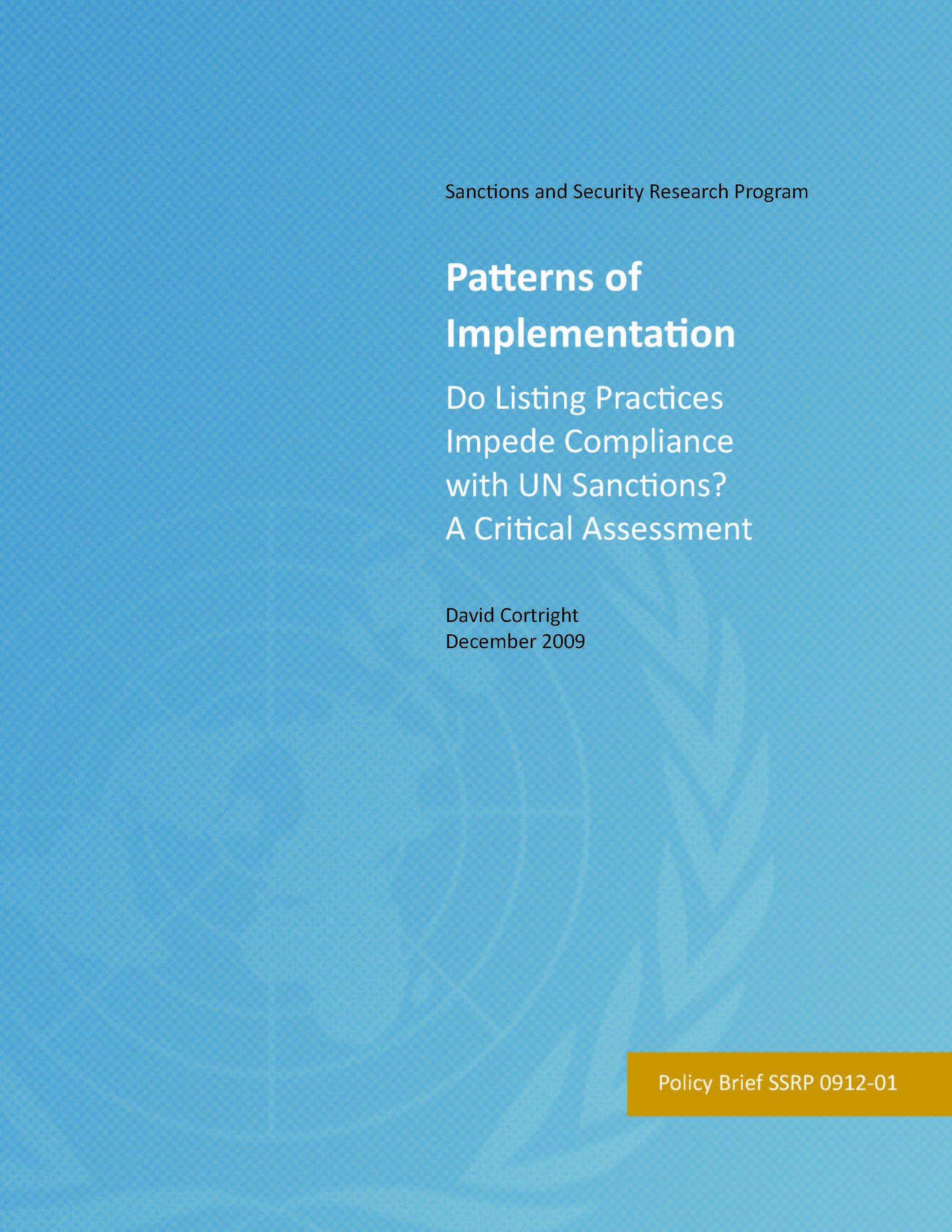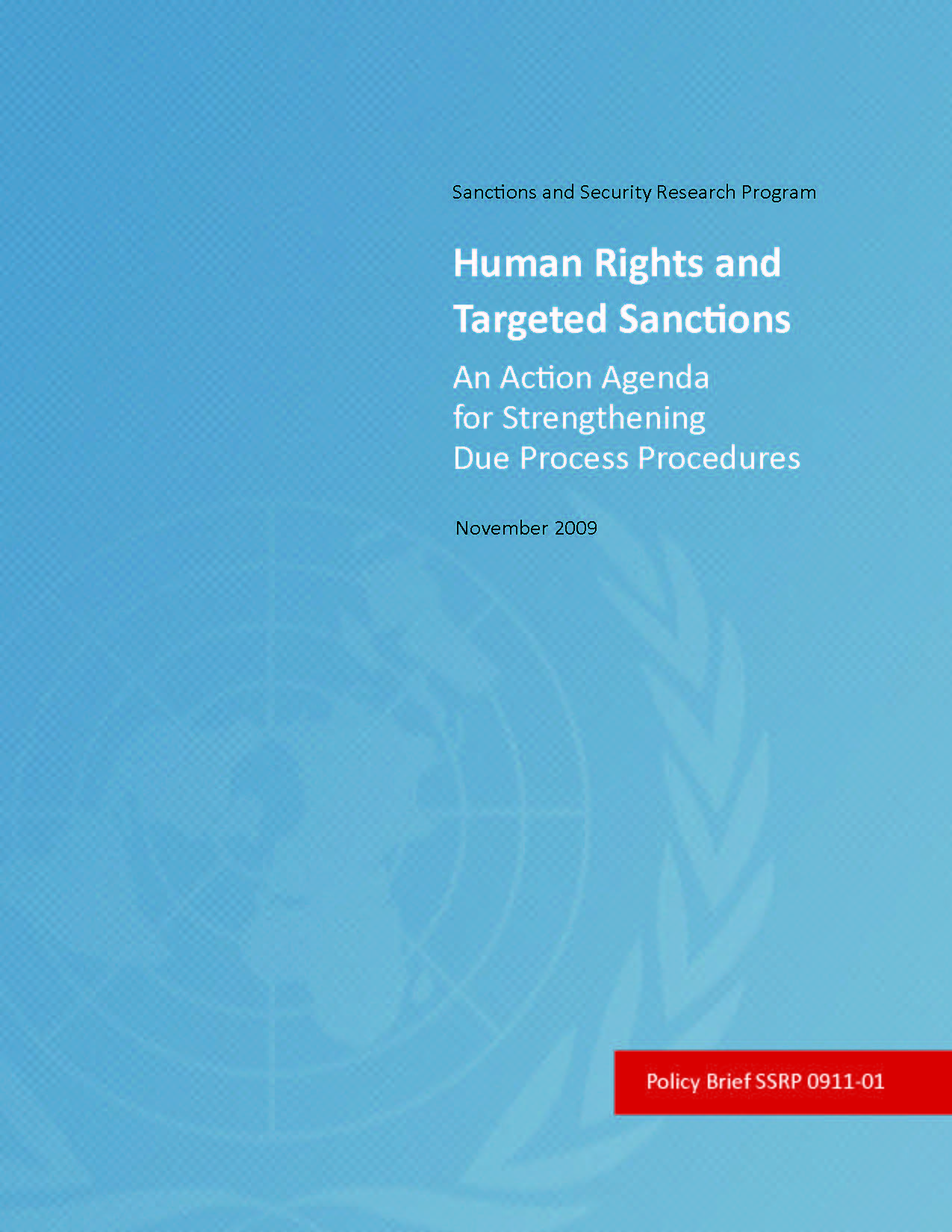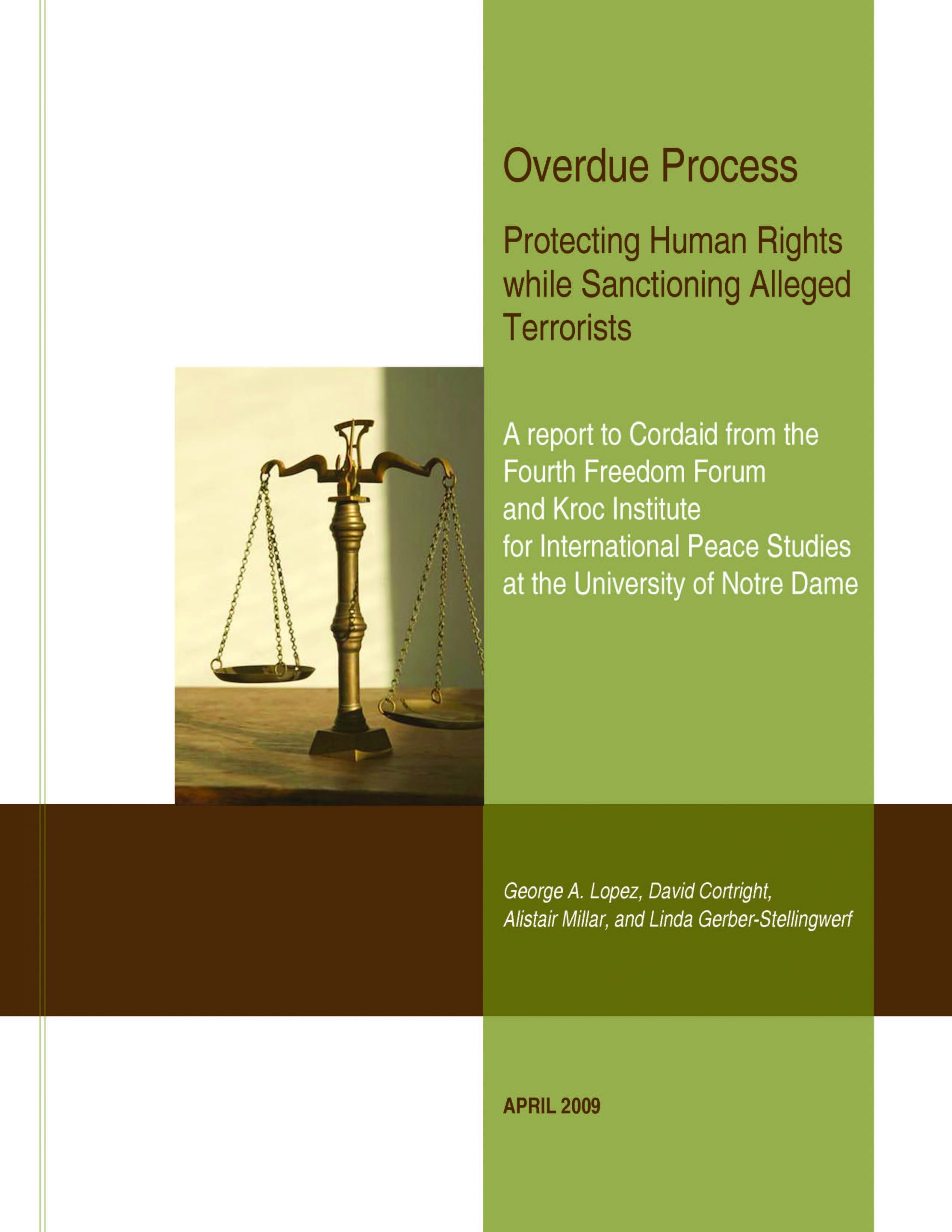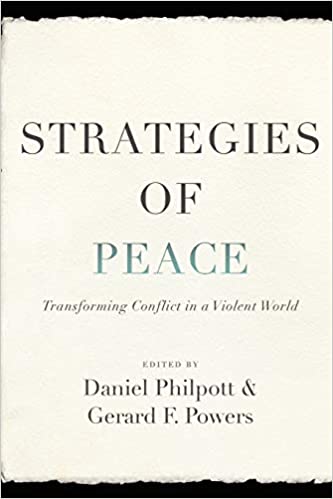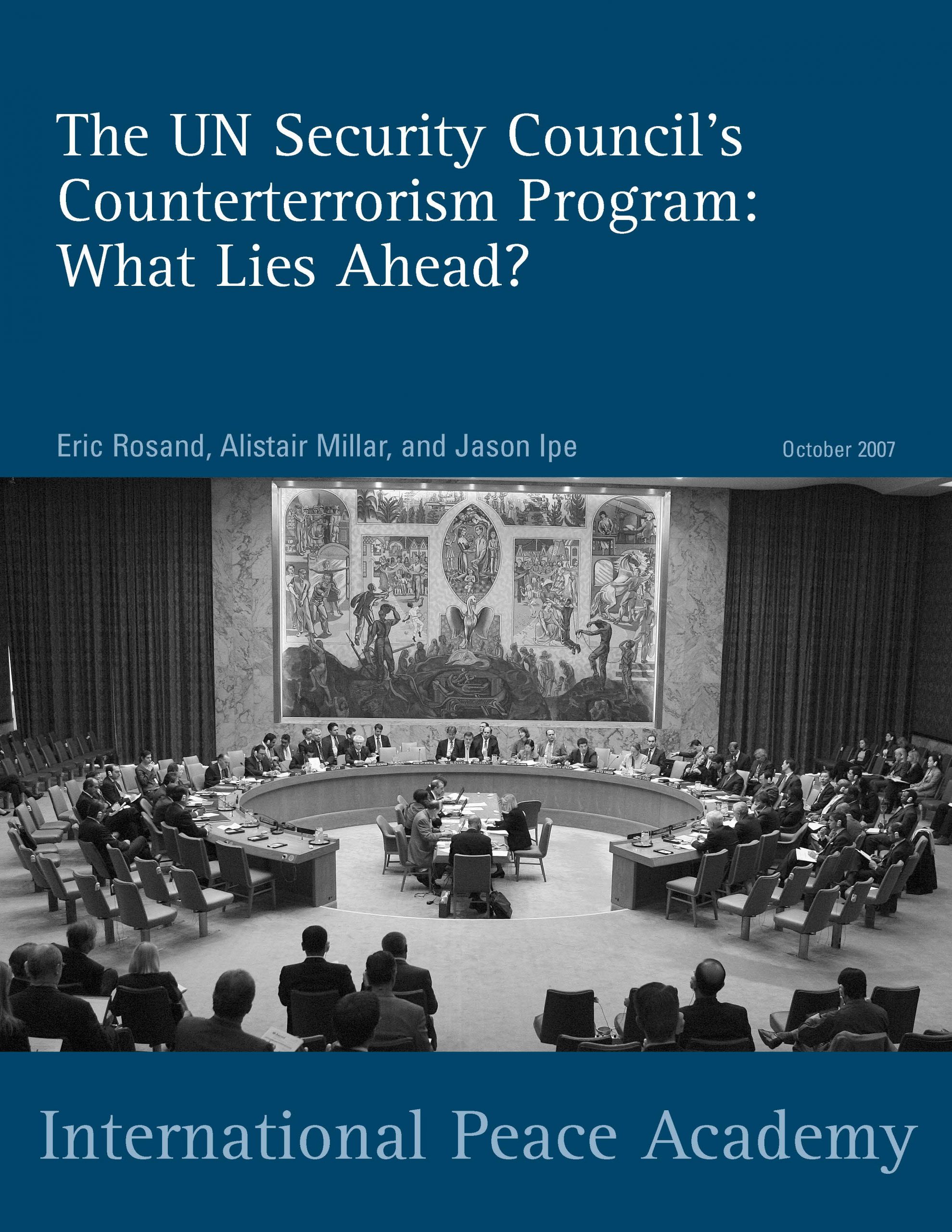Human Rights Standards for Targeted Sanctions
Report — January 2010
Legal scholar Erika de Wet and sanctions expert David Cortright team up to analyze the core principles of international human rights law in relation to the procedures for the imposition of targeted sanctions by the UN Security Council and the European Union. They conclude that while UN and EU listing and delisting procedures have improved in recent years, they still fall short of guaranteeing fundamental legal rights.
